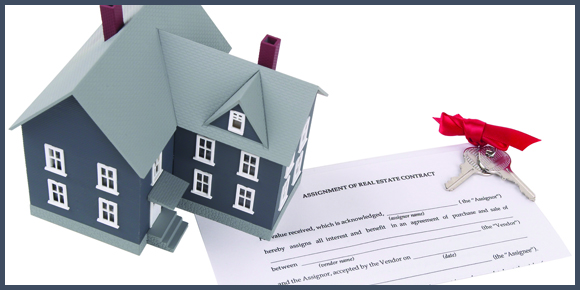Make no mistake about it — buying your first home is a big deal.
Yet, many first-time home buyers take a cavalier approach to the process despite the fact that buying a home is the single biggest purchase they will make in their lifetime.
In truth, the process associated with making that first home purchase is quite complex. While it’s one that should be approached with caution, it can be simplified significantly by adhering to some time-proven basics, said WinnipegREALTORS® president, Stewart Elston.
“It’s actually fairly common for a couple to call me up and say they’ve decided to start looking for their first home,” he said. “The first question I ask is if they’ve talked to a bank to get pre-approved. Many of them haven’t. If they tell me that, I tell them their first order of business is to get qualified for a pre-approved mortgage.”
Diane Macpherson, an Accredited Mortgage Professional (AMP) and Manitoba director for Mortgage Professionals of Canada, said it’s essential that first-time buyers make it a priority to consult with a mortgage professional before heading out to look for a home.
“It’s incredibly important,” she said. “It’s all about getting educated about what you’re getting into. Talking to a mortgage professional will prepare you for all the challenges you’re going to face.”
One of those challenges is the new stress test applied to insured mortgages with down payments under 20 per cent.
“First-time buyers will have to qualify at a different rate (the posted rate of 4.64 per cent) than they will actually pay on their mortgage,” Macpherson explained. “That will essentially lead to a 20 per cent decrease in what they will be able to afford to buy. A budget of $320,000 prior to the stress test (which was instituted October 17) would be reduced to $256,000.”
Knowing this in advance; that is, exactly what your budget is, can save buyers a lot of heartache, she added.
“Not being able to get as much in a home as you hoped you would can be disappointing and cause a period of grief for a lot of home buyers. I know it’s a reality check, but getting pre-approved will show you exactly where you’re at with your budget.”
Elston said that first-time buyers also need to sit down with both a mortgage professional and REALTOR® to get tuned into other realities, such as closing costs.
“First-time buyers really need to be made aware of closing costs,” he said. “Not only do you have to put down a down payment, but you also have to pay the land transfer tax, legal fees, property taxes and other miscellaneous costs.”
Macpherson said while closing costs are traditionally calculated as being 1.5 per cent of the purchase price of a home — costs would be $4,200 on a $280,000 home, for example — those costs will likely be higher in tax-happy Manitoba.
“The high Land Transfer Tax (LTT) will likely be the highest portion of closing costs. So while the usual percentage for closing costs is 1.5 per cent, I’d say it should actually be two to 2.5 per cent in Manitoba.”
Last, but not least, said Macpherson, first-time buyers need to be acutely aware of their debt-to-service ratio. “For example, don’t make a big purchase, such as buying a car, before you go to get pre-approved for a mortgage. That will increase your level of debt, which will reduce the amount you qualify for, or prevent you from qualifying altogether.”
What is the key to navigating the process of buying your first home as seamlessly as possible?
“Doing your due diligence, which means getting educated,” Elston said. “Consult with a mortgage professional and a Realtor before you head out to look at homes so you know what you’re getting into. Buying a home is a big commitment, so you need to get educated to make an informed, sound decision.”
Dos for first-time buyers:
• See a mortgage professional to get pre-approved for a mortgage that fits your budget.
• Enlist a reputable Realtor to guide you through the process.
• Be realistic; stick to your budget so you don’t become house poor.
Don’t:
• Make a big purchase (i.e., car loan) before applying for a mortgage.
• Forget about potentially-costly closing costs.
• Ignore your lifestyle. Can you buy a fancy home and afford to go to dinner or on winter vacations, too?–



